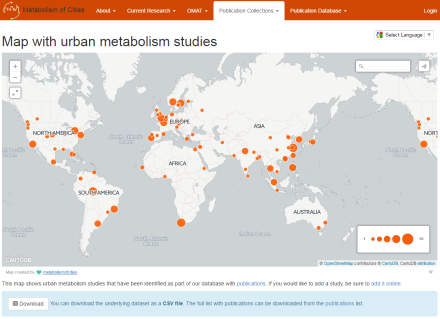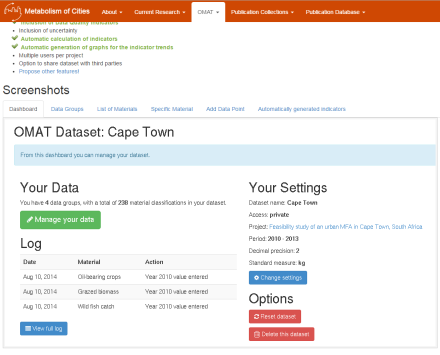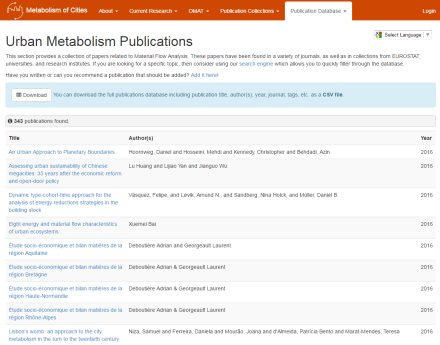Are you an urban metabolism fan? Are you also fascinated about the complex functioning of cities and by the way they mobilise energy, water and material flows across the globe? Are you searching for a concept that could help cities become more sustainable and achieve Sustainable Development Goals (SDGs) and the legally binding Paris agreement?
Then you will most certainly be interested by MetabolismofCities.org. A while ago, we created (see the team here) an online and open-source initiative that gathers data, people and information around the field of urban metabolism but also industrial ecology, material flow analysis (MFA), and other fields that gravitate around urban environmental assessment.
Urban metabolism is a notion that compares urban areas with living organisms which need resources for their functioning and generate waste during the consumption and transformation of the former. This analogy was used by different disciplines across the decades but since the pioneering study of Abel Wolman in the Scientific American in 1965 (The Metabolism of Cities), it is mainly used to better understand and assess the environmental performance of cities. It focuses on describing flows entering and exiting urban areas (energy, water, materials, waste, pollution emissions, etc.) and stocks (buildings, infrastructure, cars, etc.). By quantifying and analysing these flows, it becomes possible to monitor the environmental performance of cities, their progress towards a more (un)sustainable state but also to think of and implement systemic and comprehensive environmental policies.
However, establishing a metabolic balance for an urban system (i.e. collecting all the necessary data of all the metabolic flows and stocks) can be very time-consuming. For instance, almost four years ago and in the case of Brussels, it took me slightly more than 3 months to make a first approximation of its metabolic balance. This was only for the year 2010! Nevertheless, once you know the data sources, it is relatively easy to do the same exercise for other years (mostly the recent ones). One problem remains. Even if you have searched for and gathered all this data on your computer on a number of excel sheets, if someone else wants to do the same job, it will still take them the same amount of time (unless if you publish your results in an article, report or on the net). In addition, if you want to compare your results with another city, you will have to start all over again this data and publication collection exercise.
The idea behind the Metabolism of Cities was to streamline the process of doing an urban metabolism by creating an online and free tool, to collect publications on urban metabolism, gather all experts of the field and finally create a global database collecting metabolic data from different cities around the world (coming from the aforementioned publications).
The following screenshot (to access the map, click on the screenshot) shows a brief overview of all the urban metabolism studies we have gathered so far. By clicking on the dots you can access the studies details.
One other major contribution of this platform is the OMAT tool that helps to streamline the establishment of an urban metabolism balance. You can make a public or private project where you input all your data, include their sources but also visualise your results!
To compare your findings with other cities or studies the urban metabolism publications database has collected 300+ publications. The entire list can also be downloaded in a .csv file to create an easy to use literature review.
The last aspect that we want to develop is the global urban metabolism data database where data from all the abovementioned studies will be centralised (still in progress). Thanks to this database it will become possible to compare different cities, for a number of metabolic indicators, for different points in time, etc.
Still a lot things are being/ will be developed but this generally takes some time (so far the work is done thanks to a small team of volunteers). If you are interested in this platform don’t hesitate to chat with us, share anything you think is relevant, or even join the team!
For more info, visit MetabolismofCities.org and contact us.



